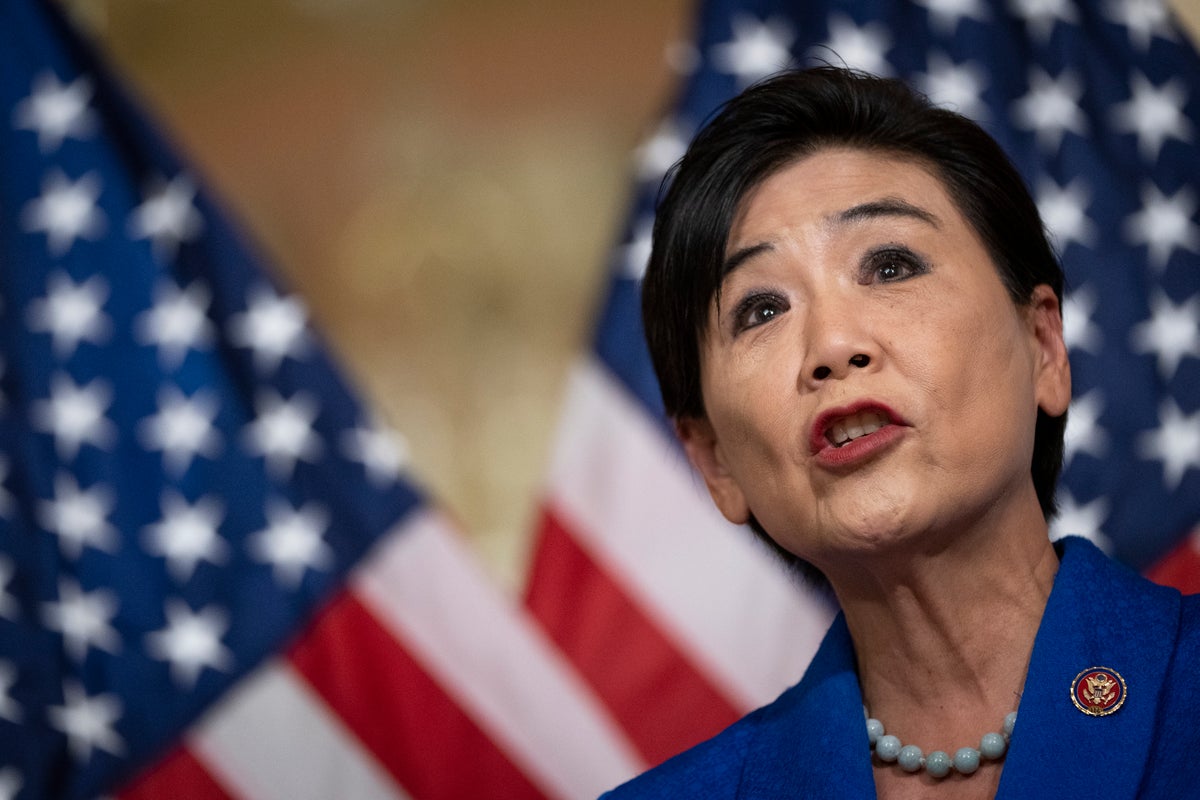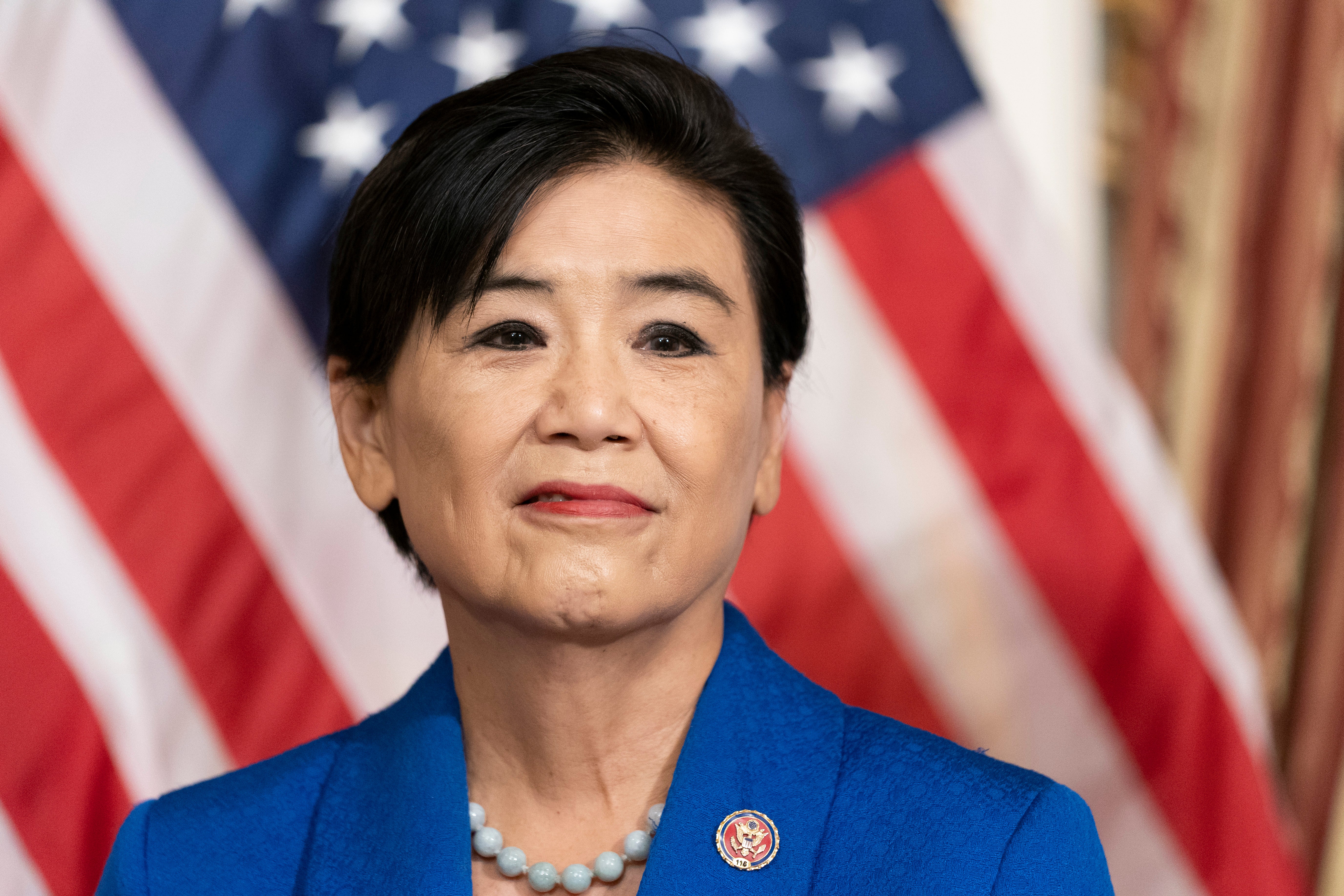
If anyone wants to know what a world without Roe v Wade would look like, US Representative Judy Chu has a story.
The California Democrat worries that if the Supreme Court were to overturn the landmark 1973 Supreme Court decision, many people from red states would not have access to abortion and may flock to blue states like hers.
In an interview with The Independent, Chu said that she’d heard a story about a woman visiting from Texas who was seven-weeks pregnant. The law signed by Republican Governor Greg Abbott last year restricts abortion after a fetal heartbeat is detected, which is typically around six weeks and before most people know they are pregnant.
“She, of course, could not get an abortion in Texas, but she already had three children, and she knew this was not the right time for her to have another child”, Chu told The Independent in an interview ahead of the Supreme Court’s decision in Dobbs v Jackson Women’s Health Organization, which is expected to be released by the end of the month.
“And so she called around all over the place and finally found a spot open in Pasadena, California”, Chu said. “And so she just packed her three children up and husband up in the car, and drove 20 hours straight to Pasadena to get the abortion. And she was treated well in our city; she got the abortion. But nonetheless, can you imagine having to go through all that?”
Pretty soon, many people – not just women, transgender and non-binary people who can get pregnant, but also their children, their husbands, their spouses, their parents, friends and coworkers – may no longer need to imagine being in that predicament.
More than a month after Politico leaked a Supreme Court draft opinion written by Associate Justice Samuel Alito indicating that the court was preparing to overturn Roe v Wade, laws have yet to change to address the potential end of the guaranteed right to seek an abortion that the 1973 court decision enshrined.
That would turn the United States into a patchwork of abortion rights, where some states like the congresswoman’s California would ensure access to abortion. Democrats in the state are pushing to enshrine it in the state constitution.
Other Republican states like Texas and Mississippi – whose 15-week abortion ban went all the way to the Supreme Court and will likely lead to the death of Roe – will have more severe restrictions.
Despite the Supreme Court’s looming decision, congressional action to protect abortion rights has been slow.
In September, the House of Representatives passed the Women’s Health Protection Act, authored by Chu. The legislation would codify the right to access an abortion and would also prohibit governments from limiting abortion providers’ ability to prescribe certain drugs. It would also offer abortion via telemedicine or provide immediate abortion services if providers determine that a delay would risk a patient’s health.
In addition, under the bill, governments could not require providers to perform unnecessary medical procedures. The legislation would also prohibit governments from requiring medically unnecessary in-person visits before terminating a pregnancy or the disclosure of their reasons for doing so. It would also prevent state governments from restricting abortion services before a foetus is viable when providers determine a pregnancy risks the patient’s life or health.
In May, Senate Democrats failed to pass the Women’s Health Protection Act, after Democratic Senator Joe Manchin came out in opposition to it.

The lack of action, despite the fact that abortion rights might be significantly curtailed, underscores how Democrats have been unable to respond to respond to the concerns of its most reliable voters.
In the past, president Joe Biden, an Irish Catholic man in his late 70s who was elected to the Senate decades ago, has been less than forthcoming about his views on abortion. He previously voted to overturn the 1973Roe v Wade decision early in his career. But on the 2020 campaign trail, Mr Biden pledged to repeal the Hyde Amendment, which bans taxpayer dollars from being used to pay for abortions.
Still, Chu said there is reason to be optimistic about Mr Biden’s position on the issue.
“He has explicitly said he would sign the Woman's Health Protection Act into law”, the California Democratic congresswoman said. “And that is why it is such a crime that the Senate hasn't passed this. We have the House, we have the presidency, we don't have the Senate. So that is the obstacle between having Roe v Wade reinstated by law, enshrined into law.”
Democrats technically have a majority in the Senate. But even if Mr Manchin had voted for the legislation, he and Senator Kyrsten Sinema of Arizona oppose getting rid of the filibuster, the 60-vote threshhold to pass legislation, which is why she supports getting rid of the filibuster. But at the same time, she said there are specific actions the Biden administration could take now, such as increasing the money for Title X family planning.
“It is the nation's only dedicated source of family planning, and that'll be more helpful to women than ever at this point in time”, she said. She also noted how Democrats in the Senate are asking for executive actions.
“And the kinds of things that we're asking them to do is, for one thing, to make sure that medication abortion, which is the method used for most abortions now, and is extremely safe, is easily accessible,” she said. “The other thing that we want president Biden to do is to make sure that the data privacy of those seeking reproductive healthcare, including abortions, is protected, because there are those states that want to access this data, want to get the names, and the addresses and numbers of those seeking abortions, and then seek to criminalise the abortion patients and providers.”

She also said she has specifically mentioned Medicaid’s “free choice of provider requirement” with Xavier Becerra, her former colleague in Congress who is now the US secretary of Health and Human Services.
“That is, this free choice of provider says that anybody in Medicaid should be able to choose whomever they wish for their services,” she said. “But some states are passing laws, or denying coverage, for those providers that provide abortions.”
Chu acknowledged that the politics of abortion are far different from when she arrived in Congress in 2009, the last time Democrats held a majority trifecta during Barack Obama’s presidency.
Chu explained to The Independent how that as many as 30 House Democrats once opposed abortion. By contrast, when the House voted on the Women’s Health Protection Act, only one Democrat voted against the legislation – Henry Cuellar of Texas. Last month, Mr Cuellar faced a bruising primary race against Jessica Cisneros, who supports abortion rights and has requested a recount after Mr Cuellar declared victory by a narrow margin.
“And the reason that these numbers have increased is because of the vote of the people”, Chu said in a video interview. “The people have voted for more pro-choice Democrats. And as a result, the numbers have increased. And those Democrats that run see that this is a popular issue that can shore up their votes in that district.”
Other Democrats who previously opposed abortion have also changed. Senator Bob Casey of Pennsylvania, whose father Bob Casey Sr as governor served as the namesake for Planned Parenthood v Casey, announced his support for the Women’s Health Protection Act before it came to a vote.
Chu said in turn that if the court follows through on its draft opinion, it would mobilise voters to act in a way they previously hadn’t.
“And so I do think that then the elections of their representatives will be front and center. I already see the position on choice being asked to all kinds of people who are running for election right now,” she said. “And that question on abortion and their stance on it wouldn't have necessarily been asked in other elections.”
Specifically, she cited how in Los Angeles’s mayoral race – between her colleague Representative Karen Bass and businessman and former Republican Rick Caruso –people were asking about abortion rights.
“So I do think that it will affect the midterm elections, especially when the decision comes about, and when states start banning abortion,” she said.







